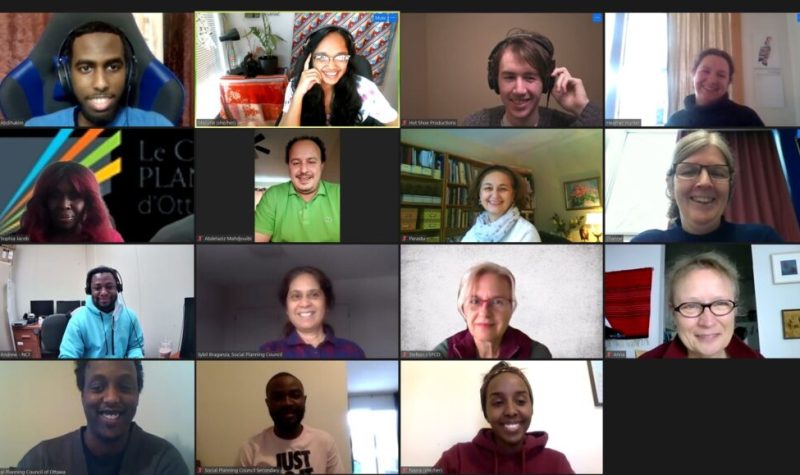As Ontario enters into its second state of emergency at midnight, Ottawa community organizers remind residents that the city’s most vulnerable are being put at risk. From risks to physical health, to heightened negative mental health effects, the racialized communities of Ottawa are being hit hard by the pandemic.
Andi Vicente from the Centretown Community Health Centre (CCHC) said that Ottawa’s newcomer population has little choice but to be working during this time.
“Lots of folks are working frontline jobs or what has been categorized as essential services,” Vicente said. “It leaves them susceptible to being exploited in the workplace, not being treated fairly or not having a safe environment to work in.”
Vicente also said that newcomers can feel even more isolated than most due to their lack of an established social network. The CCHC provides a drop-in service that seeks to provide a digital space for socializing.
“A lot of our clients need peer support groups where they can be themselves freely,” Vicente said.
Mailyne Briggs from the Social Planning Council of Ottawa has also been working to help marginalized peoples navigate the challenges of COVID-19. Briggs expects the second state of emergency to be just as difficult for Black, Indigenous and people of colour (BIPOC) community members as the first one.
“We know [racialized communities] are going to be affected,” Briggs said, pointing to the Neighbourhood Equity Index as proof. “We’ve been witnessing the reality of it which is that racialized communities are the ones who are most impacted.”
Briggs says the main support for Ottawa’s most vulnerable is coming from grassroots organizations, not the government.
“The lack of support for racialized communities is coming to the forefront,” Briggs said. “We really need more support for the communities.”


